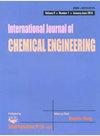商业糖作为单室微生物燃料电池中的底物对金属生物修复提高能量生产的影响
IF 2.4
4区 工程技术
Q3 ENGINEERING, CHEMICAL
引用次数: 3
摘要
微生物燃料电池(MFC)已成为一种可行的生物修复有毒金属的方法,同时也能产生能量。在本文中,我们研究了有机基质作为MFC中微生物生长的代谢来源的问题,以及它对金属离子降解和能量生产的意义。本研究的重点是在单室MFC中使用商业糖作为有机基质。MFC运行了27 天,最高电压为150 在第12天达到mV,Pb2+、Cd2+和Hg2+的毒性金属生物修复效率分别为89%、76.45%和89.45%。每24 小时后,将有机底物(糖溶液)加入细胞中。本研究还对金属离子降解和电子传输的机理进行了详尽的描述。此外,还强调了未来的一些看法。本文章由计算机程序翻译,如有差异,请以英文原文为准。
Impact of Commercial Sugar as a Substrate in Single-Chamber Microbial Fuel Cells to Improve the Energy Production with Bioremediation of Metals
Microbial fuel cells (MFCs) have emerged as a viable method for bioremediation of toxic metals while also producing energy. In this paper, we examine the issue of organic substrate as a source of metabolism for microbe growth in MFC, as well as its significance for metal ion degradation in tandem with energy production. This study focused on the use of commercial sugar as an organic substrate in a single-chamber MFC. The MFC was operated for 27 days, with the highest voltage of 150 mV achieved on day 12, and toxic metal bioremediation efficiencies of 89%, 76.45%, and 89.45% for Pb2+, Cd2+, and Hg2+, respectively. Every 24 hours, the organic substrate (sugar solution) was fed into the cell. This study’s mechanism of metal ion degradation and electron transport is also thoroughly described. In addition, some future views have been highlighted.
求助全文
通过发布文献求助,成功后即可免费获取论文全文。
去求助
来源期刊

International Journal of Chemical Engineering
Chemical Engineering-General Chemical Engineering
CiteScore
4.00
自引率
3.70%
发文量
95
审稿时长
14 weeks
期刊介绍:
International Journal of Chemical Engineering publishes papers on technologies for the production, processing, transportation, and use of chemicals on a large scale. Studies typically relate to processes within chemical and energy industries, especially for production of food, pharmaceuticals, fuels, and chemical feedstocks. Topics of investigation cover plant design and operation, process design and analysis, control and reaction engineering, as well as hazard mitigation and safety measures.
As well as original research, International Journal of Chemical Engineering also publishes focused review articles that examine the state of the art, identify emerging trends, and suggest future directions for developing fields.
 求助内容:
求助内容: 应助结果提醒方式:
应助结果提醒方式:


